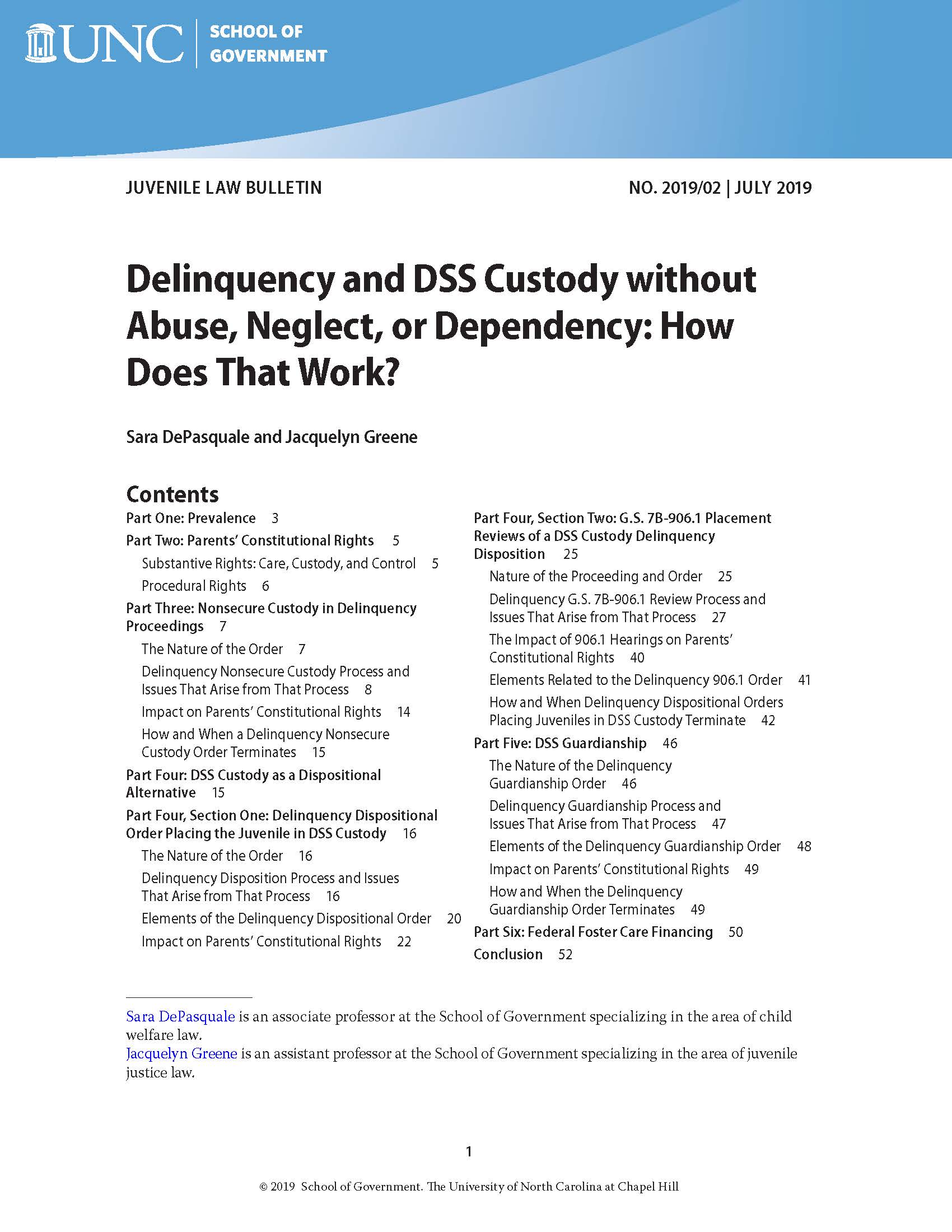Juvenile Law Bulletin #2019/02
Delinquency and DSS Custody without Abuse, Neglect, or Dependency: How Does That Work?
PLEASE NOTE: This bulletin replaces Juvenile Law Bulletin No. 2019/01, posted on June 12, 2019, due to revisions made to the subsection titled "Foster Care at Age 18 and Older." (For those of you who have downloaded or read the previous version of this bulletin, substantive revisions begin on page 44.)
In a juvenile delinquency action, the court may order a juvenile into the custody or guardianship of a county’s child welfare agency (typically a department of social services, or DSS). This DSS placement occurs without an abuse, neglect, or dependency allegation, action, or determination. As a delinquency case, the laws and procedures governing a delinquency action apply. Yet, some abuse, neglect, or dependency laws are specifically incorporated into, and others are implicated in, the delinquency action. These two different bodies of law do not fit squarely together, resulting in a complicated and at times unclear process for all involved.
This bulletin examines the applicable laws and process (current through the 2017–2018 session of the North Carolina General Assembly) that apply in a delinquency action when a juvenile is ordered to be placed in DSS custody or guardianship. Organized into six parts, the bulletin discusses the prevalence of these orders; their impact on parents’ constitutional rights; each type of delinquency order—nonsecure custody, dispositional, and guardianship; and federal funding issues that apply to a foster care placement resulting from a delinquency order. Questions resulting from these types of orders are highlighted and, when possible, are answered. The impact of the Juvenile Justice Reinvestment Act, which raises the age of juvenile court jurisdiction to age 18 effective December 1, 2019, is addressed.




